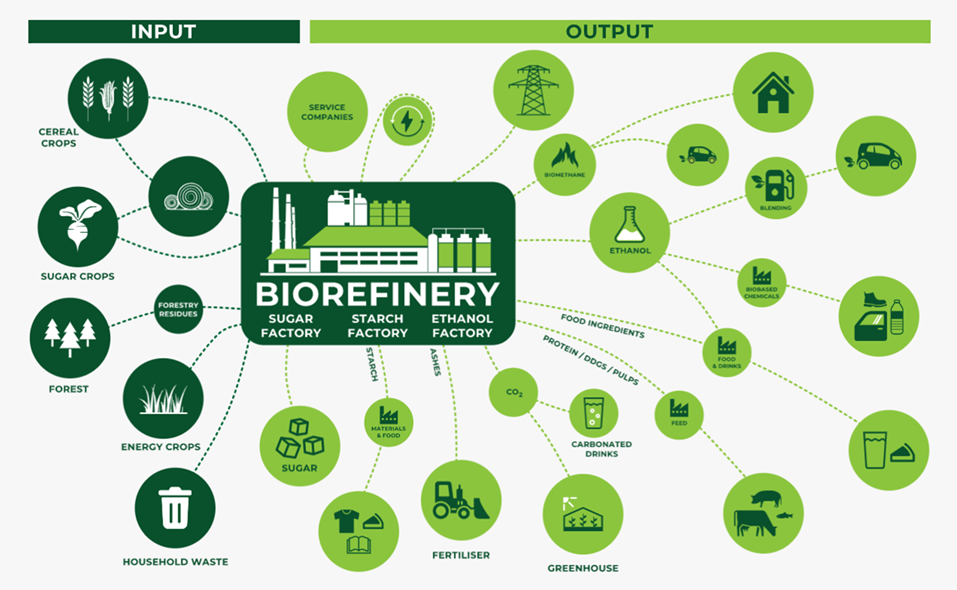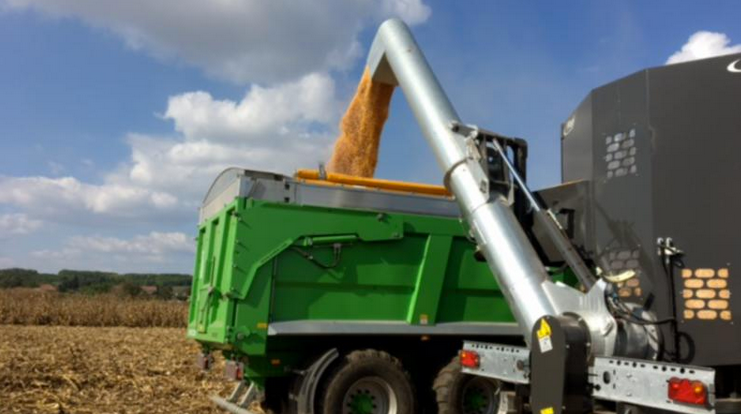EU renewable ethanol is part of the solution to Europe’s food security and fossil-free energy
New data from European Commission show EU agriculture sector’s ability to absorb market shocks, and forecast a reduction of cereals use for renewable ethanol.
New figures from the European Commission confirm the EU agriculture sector’s ability to meet food supply needs and allay concerns that demand for renewable biofuels will cause strain on the market.
In its Short-term outlook for EU agricultural markets in 2022, the Commission once again confirms the EU has no shortage of supply of food, but rather is largely self-sufficient ‘with a massive agri-food trade surplus’ enabling the Single Market to absorb the shocks related to Russia’s invasion of Ukraine.
According to the Commission, concerns regarding food affordability are due the higher price of natural gas and oil which are prominent drivers of inflation in the euro area throughout 2022. The European Commission foresees the EU’s capacity to increase EU arable crops, including cereals production, which is expected to reach 297.7 million tonnes in 2022/23, an increase of 1.5% from the previous year.
Although the Commission expects a certain reduction of cereals use for renewable ethanol, the EU can count on the EU biorefineries sector to continue the supply of high-protein, GMO-free animal feed in synergy with other important co-products in the food value chain such as sugar, starch and vegetable oil while still helping the EU drive to carbon-neutrality.
“EU renewable ethanol producers stand in solidarity with Ukraine. Russia’s invasion has highlighted the urgency of supporting EU food and energy security by mobilising an array of domestic resources. The European renewable ethanol industry already plays a strategic role in this as an important domestic source of high-protein animal feed and other products that reduce the need for EU feed and food imports.”
Simona Vackeová, Secretary-General ad interim of ePURE.
Specifically, EU renewable ethanol production contributes to:
- Reducing EU food and feed dependency: EU renewable ethanol production generates significant high-protein, GMO-free animal feed. Each tonne of ethanol automatically generates 1 tonne of such animal feed and in 2019, European ethanol producers supplied overall more than 4.5 Mt of it. A significant share of EU renewable ethanol production takes place in complete synergy with sugar and starch production and generates a variety of other food and non-food products such as vegetable oil, gluten (used in pasta, and animal feed), vinasses (natural fertilizers) and captured CO2 to replace fossil CO2 in the cold chain, greenhouses, and drinks.
- Ensuring strategic sanitary production: Alcohol is not only dedicated to the fuel market as more than 20% of EU production is used in food and industrial applications. Due to the flexibility of our plants, during the COVID-19 pandemic, EU renewable ethanol producers acted quickly supply, and mostly offer, alcohol to hospitals and civil society to be used as disinfectant and hand sanitizers. The EU did not suffer from any shortage or any import dependency on these products thanks to EU renewable ethanol plants which would not exist if it were not for the EU renewable energy policy.
- Reducing EU energy dependency: Use of renewable ethanol offsets the consumption of imported fossil petrol. Today, most EU petrol cars can run on E10 (containing maximum 10% renewable ethanol blend in petrol) and in certain EU countries, citizens take advantage of E85 (containing up to 85% ethanol). Moreover, renewable ethanol is an essential oxygenate for petrol quality which substitutes the import of fossil-based products.
EU biorefineries play a major strategic role in securing food and high-protein feed supply and helping consumers to access affordable transport modes, thus reducing EU energy dependency as well as GHG emissions in the transport sector.





